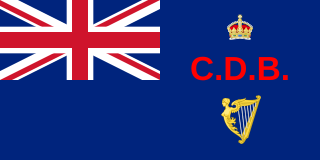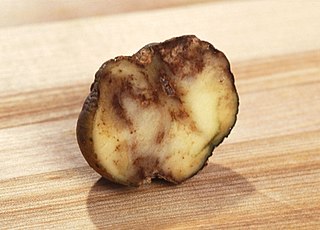Related Research Articles

The Scottish Office was a department of the Government of the United Kingdom from 1885 until 1999, exercising a wide range of government functions in relation to Scotland under the control of the Secretary of State for Scotland. Following the establishment of the Scottish Parliament in 1999, most of its work was transferred to the newly established Scottish Executive, with a small residue of functions retained by the Scotland Office.

The first Highland Land League emerged as a distinct political force in Scotland during the 1880s, with its power base in the country's Highlands and Islands. It was known also as the Highland Land Law Reform Association and the Crofters' Party. It was consciously modelled on the Irish Land League.

The Congested Districts Board for Ireland was established by The Rt. Hon. A.J. Balfour, P.C., M.P., the Chief Secretary, in 1891 to alleviate poverty and congested living conditions in the west and parts of the northwest of Ireland.

James Hack Tuke was an English philanthropist.
The British Electricity Authority (BEA) was established as the central British electricity authority in 1948 under the nationalisation of Great Britain's electricity supply industry enacted by the Electricity Act 1947. The BEA was responsible for the generation, transmission and sale of electricity to area electricity boards, and the development and maintenance of an efficient, coordinated and economical system of electricity supply.

The first MacDonald ministry of the United Kingdom lasted from January to November 1924. The Labour Party, under Ramsay MacDonald, had failed to win the general election of December 1923, with 191 seats, although the combined Opposition tally exceeded that of the Conservative government, creating a hung parliament. Stanley Baldwin remained in office until January 1924.

Crofting is a form of land tenure and small-scale food production particular to the Scottish Highlands, the islands of Scotland, and formerly on the Isle of Man. Within the 19th-century townships, individual crofts were established on the better land, and a large area of poorer-quality hill ground was shared by all the crofters of the township for grazing of their livestock. In the 21st century, crofting is found predominantly in the rural Western and Northern Isles and in the coastal fringes of the western and northern Scottish mainland.

The Highland Potato Famine was a period of 19th-century Highland and Scottish history over which the agricultural communities of the Hebrides and the western Scottish Highlands saw their potato crop repeatedly devastated by potato blight. It was part of the wider food crisis facing Northern Europe caused by potato blight during the mid-1840s, whose most famous manifestation is the Great Irish Famine, but compared with its Irish counterpart, it was much less extensive and took many fewer lives as prompt and major charitable efforts by the rest of the United Kingdom ensured relatively little starvation.

The Crofters Holdings (Scotland) Act 1886 is an Act of the Parliament of the United Kingdom that created legal definitions of crofting parish and crofter, granted security of land tenure to crofters and produced the first Crofters Commission, a land court which ruled on disputes between landlords and crofters. The same court ruled on whether parishes were or were not crofting parishes. In many respects the Act was modelled on the Irish Land Acts of 1870 and 1881. By granting the crofters security of tenure, the Act put an end to the Highland Clearances.
The Irish Land Commission was created by the British crown in 1843 to "inquire into the occupation of the land in Ireland. The office of the commission was in Dublin Castle, and the records were, on its conclusion, deposited in the records tower there, from whence they were transferred in 1898 to the Public Record Office". It took on the role of a rent fixing commission in 1881 under the Land Law (Ireland) Act 1881. For a century it was the body responsible for re-distributing farmland in most of Ireland. It was formally abolished in 1999.
The Napier Commission, officially the Royal Commission of Inquiry into the Condition of Crofters and Cottars in the Highlands and Islands was a royal commission and public inquiry into the condition of crofters and cottars in the Highlands and Islands of Scotland.

A croft is a traditional Scottish term for a fenced or enclosed area of land, usually small and arable, and usually, but not always, with a crofter's dwelling thereon. A crofter is one who has tenure and use of the land, typically as a tenant farmer, especially in rural areas.

Sir Horace Curzon Plunkett, was an Anglo-Irish agricultural reformer, pioneer of agricultural cooperatives, Unionist MP, supporter of Home Rule, Irish Senator and author.

The Scottish Land Court is a Scottish court of law based in Edinburgh with subject-matter jurisdiction covering disputes between landlords and tenants relating to agricultural tenancies, and matters related to crofts and crofters. The Scottish Land Court is both a trial court and an appeal court; hearings at first-instance are often heard by a Divisional Court of one of the Agricultural Members advised by the Principal Clerk. Decisions of the Divisional Court can be appealed to the Full Court, which will consist of at least one legally qualified judicial member and the remaining Agricultural Member. Some cases are heard at first-instance by the Full Court, and these cases may be appealed to the Inner House of the Court of Session.
Angus Sutherland CB was a Scottish Liberal politician.

James Falconer was a Scottish solicitor and Liberal Party politician.
William Lawson Micks was an Irish civil servant.
Events from the year 1897 in Scotland.
Neil John Downie Kennedy, Lord Kennedy was a Scottish advocate, legal academic and judge. He was a Professor of Law at the University of Aberdeen, and served from 1912 to 1918 as the first chairman of the Scottish Land Court.
The 1920 Birthday Honours were appointments by King George V to various orders and honours to reward and highlight good works by citizens of the British Empire. The appointments were made to celebrate the official birthday of The King, and were published in The London Gazette on 4 June 1920.
References
Haythornthwaite, J.A.; N.C. Wilson; V.A. Batho (1993). "Scotland in the nineteenth century, an analytical bibliography of material relating to Scotland in parliamentary papers, 1800-1900, section 8.4" . Retrieved 1 April 2007.